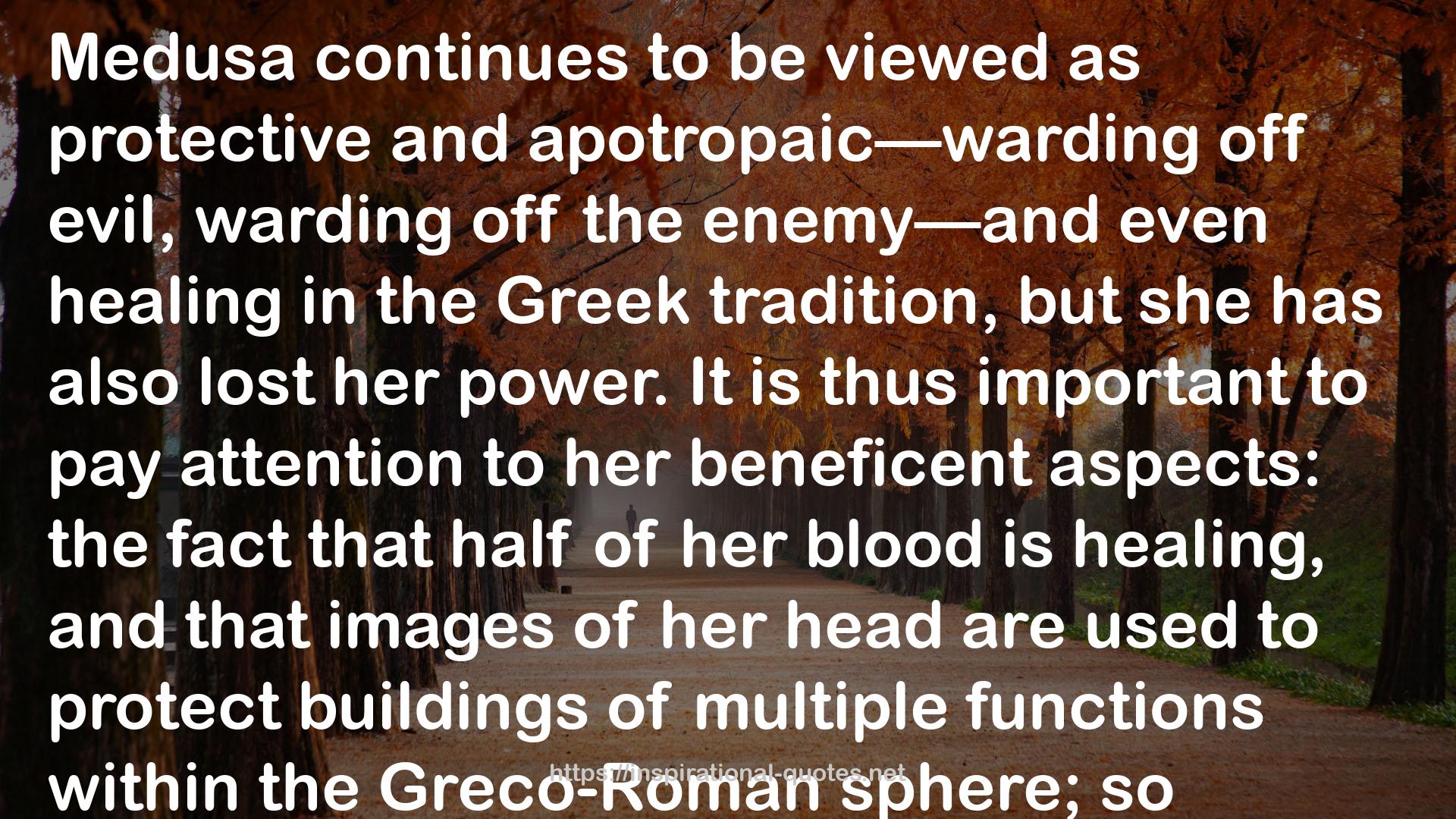" Medusa continues to be viewed as protective and apotropaic—warding off evil, warding off the enemy—and even healing in the Greek tradition, but she has also lost her power. It is thus important to pay attention to her beneficent aspects: the fact that half of her blood is healing, and that images of her head are used to protect buildings of multiple functions within the Greco-Roman sphere; so protective is she considered to be that her head was buried near the Argive market-place. Medusa is magical. She reminds us that we must not take the female “monster” at face value; that we must weigh not only her beneficent against her maleficent attributes, but we must also take into consideration the world view and the sociopolitical stance of the cultures which create her, fashioning the demonic female as scapegoat for the benefit and comfort of the patriarchal members of their societies. "
― Miriam Robbins Dexter, , Re-visioning Medusa: from Monster to Divine Wisdom
